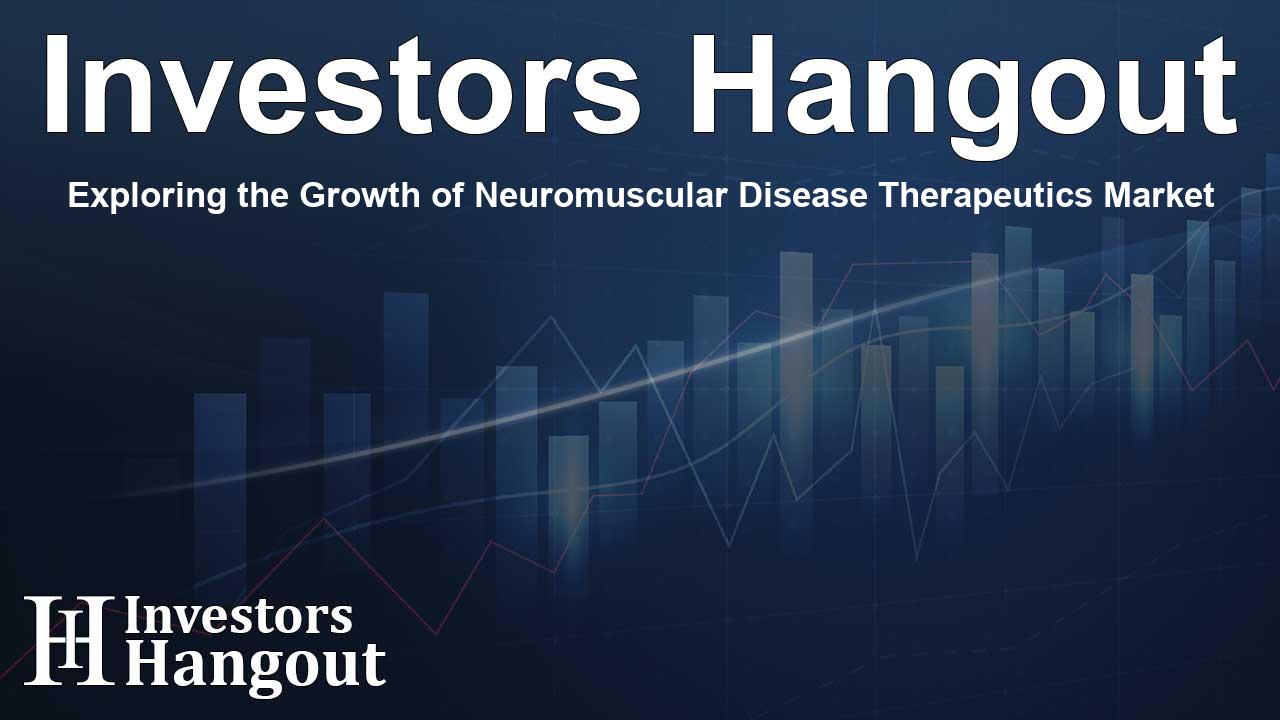Exploring the Growth of Neuromuscular Disease Therapeutics Market

Overview of the Neuromuscular Disease Therapeutics Market
The neuromuscular disease therapeutics market is on track to experience significant growth, with estimates indicating a potential increase of USD 13.7 billion from 2025 to 2029. This trailblazing growth is primarily driven by innovative approvals and advancements in treatment methodologies. The market's projected compound annual growth rate (CAGR) stands at an impressive 14.6%, highlighting the rising necessity for effective therapies in this field.
Driving Forces Behind Market Growth
Key players in the neuromuscular disease therapeutics market, such as AbbVie Inc., Biogen Inc., and Novartis AG, are heavily investing in research and development. These companies aim to create novel therapies that prioritize both efficacy and safety in nerve impulse transmission. Growing demand in orthopedic and critical care settings further accelerates market expansion as the need for optimal muscle relaxation solutions intensifies.
Technological Innovations
In recent times, the impact of technological advancements cannot be overstated. The ongoing research and development focused on regenerative therapies, including gene and cell therapies, exemplify efforts to address the limitations of existing treatments. These innovations are crucial in modifying treatment approaches for neuromuscular diseases, as they can potentially provide more effective long-term solutions.
The Role of AI in Market Transformation
Artificial intelligence (AI) is revolutionizing the landscape of neuromuscular disease therapeutics. This technology is not only streamlining therapeutic processes but also enhancing the precision of treatments. AI's analytical capabilities are invaluable in identifying trends, suggesting treatment paths, and predicting patient responses, thus fostering a more tailored healthcare experience.
Challenges Faced by the Market
Despite its promising outlook, the neuromuscular disease therapeutics market grapples with challenges such as the high costs associated with these treatments. The financial burden placed on patients and healthcare systems can be staggering, particularly for therapies like SPRINZA, which are critical for conditions like spinal muscular atrophy. There's an urgent call for strategies to manage these costs while ensuring accessibility to essential treatments.
Patient-Centric Approaches
As the market matures, there's an increasing emphasis on patient-centric methodologies. Companies are now recognizing the importance of aligning treatment strategies with patient needs and preferences. By implementing collaborative frameworks between pharmaceutical companies and healthcare providers, there's hope for improved patient outcomes and experiences.
Market Segmentation Insights
The neuromuscular disease therapeutics market can be segmented into various categories based on end-users, types, and geographical distribution. The primary end-users include hospitals, clinics, and other medical settings, where therapies are administered. Each segment requires tailored strategies to optimize impact and efficacy.
Emerging Trends in Therapeutics
Historically, the therapeutic landscape for neuromuscular diseases has been dominated by traditional drug formulations. However, the shift towards biologics and personalized medicine is gaining remarkable traction. This trend towards individualized treatment approaches is anticipated to enhance therapeutic effectiveness and patient satisfaction.
Future Perspectives on Market Growth
The future of the neuromuscular disease therapeutics market seems promising, with expectations of continual growth driven by escalating disease awareness, technological innovations, and supportive regulatory frameworks. Collaboration among stakeholders in research, healthcare, and technology will be pivotal in unlocking new pathways for treatment and r&d.
Key Takeaways
As we look ahead, the neuromuscular disease therapeutics market is positioned for remarkable transformation. By embracing advanced treatment methodologies and addressing the inherent challenges, there's a strong potential for improving quality of life for patients grappling with these chronic conditions.
Frequently Asked Questions
What is driving the growth of the neuromuscular disease therapeutics market?
The market is primarily driven by advancements in treatment options, increased focus on safety and efficacy, and the introduction of innovative therapies.
How significant is the impact of AI on neuromuscular disease therapeutics?
AI is playing a crucial role by enhancing the development and application of therapies, helping in predicting patient outcomes, and improving overall treatment strategies.
What are some challenges facing the neuromuscular disease therapeutics market?
Significant challenges include high treatment costs, ensuring safety and efficacy, and maintaining regulatory compliance while promoting innovation.
Which companies are key players in this market?
Key players include AbbVie Inc., Biogen Inc., and Novartis AG, among others, who are investing heavily in research and development of new therapies.
What are the future trends in the neuromuscular disease therapeutics market?
Future trends are likely to focus on personalized medicine, increased use of biologics, and the continuous integration of technological advancements in treatments.
About Investors Hangout
Investors Hangout is a leading online stock forum for financial discussion and learning, offering a wide range of free tools and resources. It draws in traders of all levels, who exchange market knowledge, investigate trading tactics, and keep an eye on industry developments in real time. Featuring financial articles, stock message boards, quotes, charts, company profiles, and live news updates. Through cooperative learning and a wealth of informational resources, it helps users from novices creating their first portfolios to experts honing their techniques. Join Investors Hangout today: https://investorshangout.com/
Disclaimer: The content of this article is solely for general informational purposes only; it does not represent legal, financial, or investment advice. Investors Hangout does not offer financial advice; the author is not a licensed financial advisor. Consult a qualified advisor before making any financial or investment decisions based on this article. The author's interpretation of publicly available data presented here; as a result, they should not be taken as advice to purchase, sell, or hold any securities mentioned or any other investments. If any of the material offered here is inaccurate, please contact us for corrections.